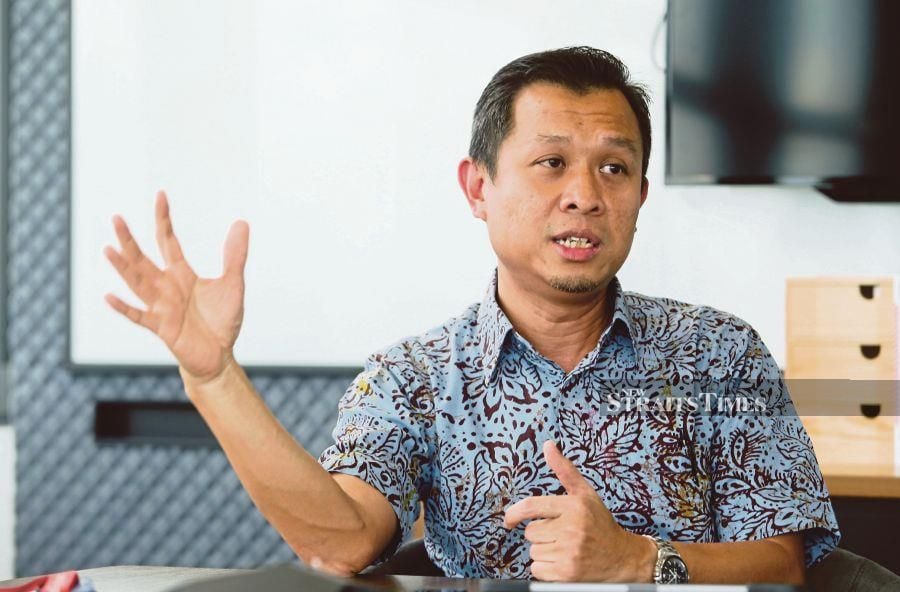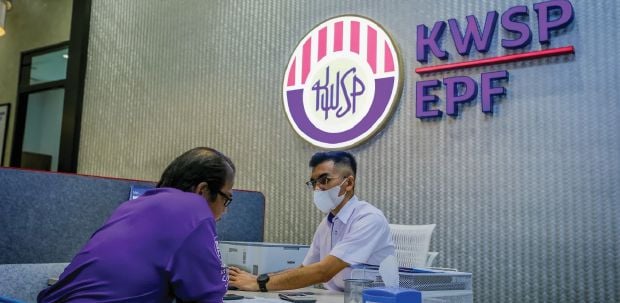The Employees Provident Fund (EPF) will actively pursue the digitalisation of its operations, aiming to deliver exceptional online services while concurrently ensuring the ongoing protection of data of its more than 16 million members.
EPF chief digital technology officer Muhammad Afhzal Abdul Rahman told Business Times that the fund was ramping up its transformation journey.
The most crucial step is adopting a mobile-first stategy and ensuring all, if not most of its services are available via mobile.
"There is a need to continue to enrich and deliver greater functionality through mobile applications. What we are seeing with smartphones is the fact that today, just like the wallet, people carry it everywhere they go.
"Therefore, on our recently launched new i-Akaun mobile app, we introduced eKYC, which allows our members and future members to register as an EPF member as well as to activate their i-Akaun online.
"We will continue to expand that to other adjacent services. For example, we have enabled our members to invest in unit trust through our i-Invest scheme. That is available today but we are enhancing it as part of our strategy around mobile-first capabilities," he said.
eKYC, or electronic Know Your Customer, is used by organisations to verify a customer's identity on a digital platform.
Prior to this, individuals who wanted to register with the EPF had to visit its branches.
Afhzal said the EPF's offline processes previously required a lot of paperwork and were time-consuming.
"However, the process of applying for withdrawals only takes a few minutes now and can be done online.
"There is no need for us to submit documentation as we have the ability to connect and integrate with the participating banks.
"A lot has been done to focus on elevating and enhancing the online experience on our digital platforms. What we aim to do is to ensure we continue to champion the EPF's "ACE" objectives of promoting savings Adequacy, enhancing Coverage and enhancing customer Experience through digital," he said.
Among the recent online services the EPF introduced was voluntary contribution via its mobile app.
"In the span of one month, we were able to collect RM129 million in contributions. If you look at the number today, it is close to 2.7billion ringgit. Simple technology like this has helped to facilitate contribution collection."
Although the fund is focusing on digitalisation, some of its services still require branch visits, including first-time withdrawals by members.
"For first withdrawals, we still require members' thumbprints. But we are looking at shifting some of that through eKYC. We are assessing the risk associated with that. "We hope to be able to allow our members to perform first withdrawals online in the near future, under certain circumstances.
Addressing online threats
But as the fund digitalises and embraces technology such as cloud and APIs, Afhzal said the need to protect critical assets and data had become more prominent.
He said the EPF had put in place various initiatives that were meant to address the key components of strengthening cybersecurity starting with having the right policies, governance and procedures.
Although the fund is not regulated, he noted that the EPF referred to Bank Negara Malaysia's Risk Management in Information Technology (RMiT) as well as adopting other regional guidelines from highly regulated industries, such as the banking and financial industries.
"The second most important step is putting in place the right technology to protect not only what we have today but also what we intend to do in the future.
"As you digitalise more and leverage more technology, it obviously expands the threat surface.
"As more things depend on technology, there are a lot more areas that can be hacked, exploited and so forth. That continues to be a concern."
Benefits of digitalisation
Despite the threats, Afhzal said the benefits of going digital trumped the risks.
The rise of new technologies such as generative artificial intelligence (GenAI) such as ChatGPT will allow the EPF to devour a wealth of knowledge and content that can be applied to enhance its operations.

The Employees Provident Fund says generative AI has the potential to enhance Elya, its bilingual virtual assistant.
"Elya has been good in terms of helping us to respond to customer queries but the process of training Elya takes quite a bit of time because of the underlying technology constraints.
"But ChatGPT, with its large language model, will allow us to train Elya in a shorter time."
The EPF is also assessing suitability of ChatGPT and generative AI as an internal virtual adviser for its retirement advisory staff.
This is expected to help EPF staff in providing meaningful advice , with sufficient inputs, when responding to members' queries.
"This is something we are exploring at the moment. If we think that ChatGPT can deliver the benefits, then we will extend it.
"It is still in an exploratory phase and hopefully, we will be able to determine whether or not it's suitable."
As the EPF ramps up its digitalisation and technology adoption efforts, Afhzal expects its IT capital expenditure to increase in tandem.
"However, we continue to ensure that we spend and invest prudently and maximise the benefits of the technology that we adopt moving forward," he said.






